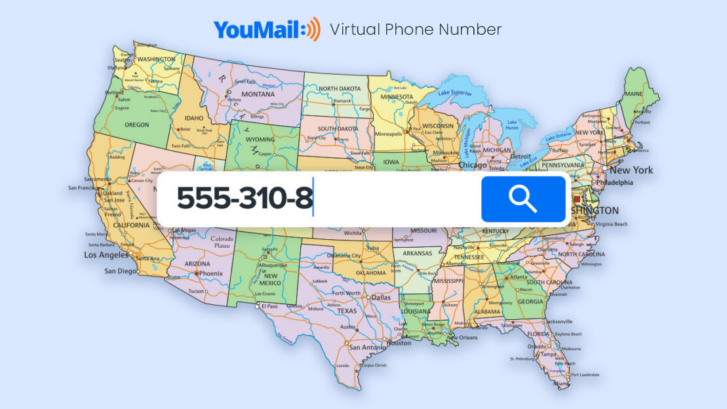Communication has evolved in leaps and bounds since the invention of the smartphone. One such innovation that has gained prominence is the virtual number. In this comprehensive guide, we will explore the world of virtual numbers, from their definition and benefits to how they work and their various applications. Let’s embark on this journey to demystify virtual numbers!
What is a Virtual Number?
Virtual numbers, also known as virtual phone numbers or DID (Direct Inward Dialing) numbers, are phone numbers that are not tied to a specific phone line or device. Instead, they are cloud-based and can be forwarded to any phone number of your choice. These numbers work over the internet, making them versatile and accessible from anywhere.
Key Features of Virtual Numbers
- Flexibility: Virtual numbers can be redirected to any device or phone number, providing flexibility and accessibility.
- Cost-Efficiency: They often cost less than traditional phone lines and eliminate the need for dedicated hardware.
- Local Presence: Virtual numbers can be obtained with local area codes, enhancing your business’s local presence.
- Scalability: Easily scale your communication needs by adding or removing virtual numbers as required.
How Does a Virtual Number Work?
Understanding the mechanics of virtual numbers is crucial to harnessing their power. When someone calls a virtual number, the call is routed through the cloud-based system to a predetermined destination number. This destination number could be a mobile phone, landline, or even a VoIP service.
The Call Routing Process
- Incoming Call: A caller dials the virtual number.
- Cloud-Based System: The call is intercepted by a cloud-based system.
- Call Forwarding: The cloud system forwards the call to the designated destination number.
- Connection: The call is connected, allowing communication between the caller and the recipient.
Advantages of Using Virtual Numbers
Virtual numbers offer a plethora of benefits for individuals and businesses alike. Let’s delve into some of the advantages they bring to the table.
1. Enhanced Privacy
Virtual numbers allow you to keep your personal phone number private. When you share your virtual number, you can maintain a level of anonymity and avoid unwanted calls on your personal line.
2. Professional Image
For businesses, having a virtual number with a local area code can project a professional image. It instills trust and confidence in customers and clients, especially if your business operates in multiple regions.
3. Cost Savings
Compared to traditional phone systems, virtual numbers are cost-effective. They eliminate the need for expensive hardware and provide flexible pricing plans to suit your budget.
4. Geographic Flexibility
With virtual numbers, you can establish a presence in different locations without physically being there. This is invaluable for businesses looking to expand their reach.
5. Call Tracking
Virtual numbers often come with call tracking features, allowing businesses to monitor call metrics and gain insights into customer behavior.
Virtual Numbers in Business
The business world has greatly benefited from the use of virtual numbers. Let’s explore some common applications in various industries.
1. Customer Service
Virtual numbers are widely used for customer service hotlines. They ensure that customers can reach the support team easily and at their convenience.
2. Marketing Campaigns
In marketing, virtual numbers are employed to track the effectiveness of campaigns. Each campaign can have a unique virtual number, making it easier to measure ROI.
3. E-commerce
Online retailers often use virtual numbers for order inquiries and support. It adds a layer of professionalism and trust to the buying experience.
4. Remote Work
With the rise of remote work, virtual numbers enable employees to make and receive business calls from anywhere, maintaining a cohesive work environment.
5. International Expansion
Businesses looking to expand globally can use virtual numbers with international area codes to establish a presence in foreign markets.
FAQs About Virtual Numbers
How do I obtain a virtual number?
Obtaining a virtual number is relatively simple. You can choose a service provider, select a virtual number with the desired features, and set up call forwarding to your preferred destination number.
Are virtual numbers only for businesses?
No, virtual numbers can be used by individuals as well. They are useful for maintaining privacy and managing personal and professional calls separately.
Can I port my existing phone number to a virtual number?
Yes, many virtual number providers offer number porting services, allowing you to transfer your existing phone number to a virtual format.
Are virtual numbers secure?
Virtual numbers are as secure as traditional phone lines. However, it’s essential to choose a reputable service provider to ensure the security of your communications.
What is the cost of a virtual number?
The cost of a virtual number varies depending on the service provider and the features you choose. Basic virtual numbers are often affordable, with additional charges for advanced features.
How can I change the destination number for my virtual number?
You can easily change the destination number for your virtual number through the settings provided by your service provider. It’s a simple process that can be done online.
Conclusion
In conclusion, virtual numbers have revolutionized communication in both personal and business contexts. Their flexibility, cost-efficiency, and myriad features make them an indispensable tool in the modern world. Whether you’re looking to enhance privacy, project a professional image, or streamline your business communication, virtual numbers have you covered.
So, why wait? Embrace the future of communication with virtual numbers and experience the convenience and efficiency they bring to your life or business.





